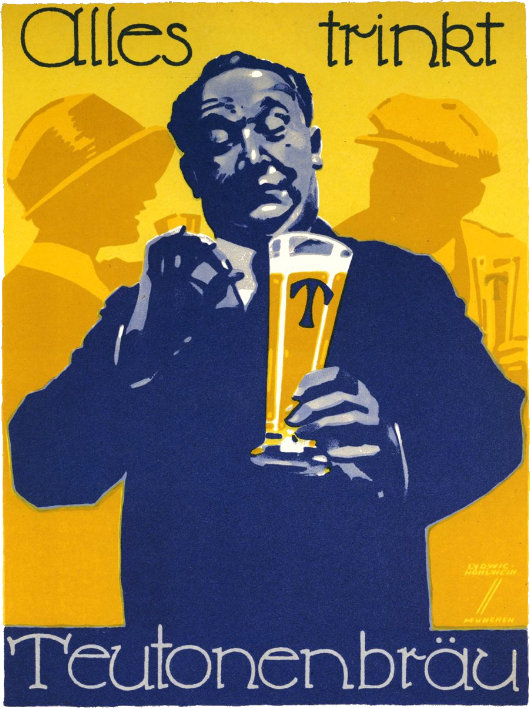Beer
About Andrew Cusack
 Writer, web designer, etc.; born in New York; educated in Argentina, Scotland, and South Africa; now based in London.
Writer, web designer, etc.; born in New York; educated in Argentina, Scotland, and South Africa; now based in London. read more
News
Blogs
Reviews & Periodicals
Arts & Design
World
France
Mitteleuropa
Knickerbockers
Argentina
The Levant
Africa
Cape of Good Hope
Netherlands
Scandinavia
Québec
India
Muscovy
Germany
Academica
Articles of Note: 6 January 2024
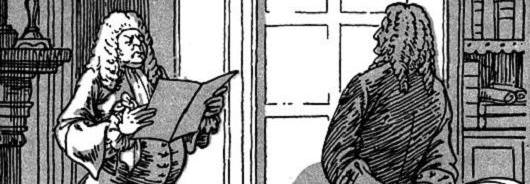
■ I had the great privilege of studying French Algeria under the knowledgeable and congenial Dr Stephen Tyre of St Andrews University and the country continues to exude an interest. The Algerian detective novelist Yasmina Khadra — nom de plume of the army officer Mohammed Moulessehoul — has attracted notice in Angledom since being translated from the Gallic into our vulgar tongue.
Recently the columnist Matthew Parris visited Algeria for leisurely purposes and reports on the experience.
■ While you’re at the Spectator, of course by now you should have already studied my lament for the excessive strength of widely available beers — provoked by the news that Sam Smith’s Brewery have increased the alcohol level of their trusty and reliable Alpine Lager.
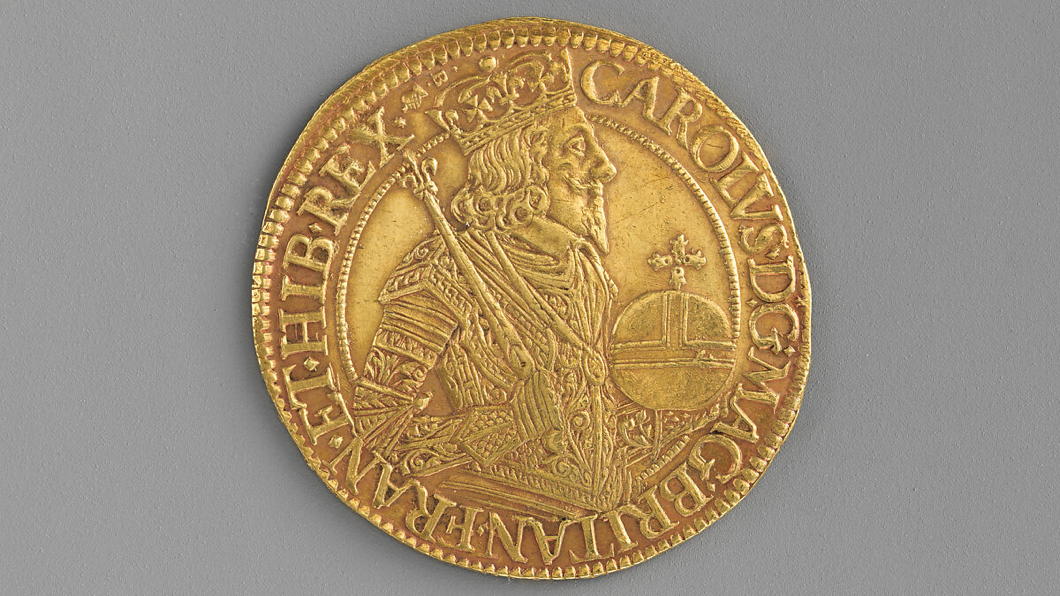
■ This week Elijah Granet of the Legal Style Blog shared this numismatic gem. It makes one realise quite how dull our coin designs are these days. I don’t see why we shouldn’t have an updated version of this for our currently reigning Charles.
■ Meanwhile Chris Akers of Investors Chronicle and the Financial Times has gone on retreat to Scotland’s ancient abbey of Pluscarden and written up the experience for the FT. As he settled into the monastic rhythm, Chris found he was unwinding more than he ever has on any tropical beach.
Pluscarden is Britain’s only monastic community now in its original abbey, the building having been preserved — albeit greatly damaged until it was restarted in 1948. The older Buckfast is also on its original site but was entirely razed by 1800 or so and rebuilt from the 1900s onwards. (Pluscarden also has an excellent monastic shop.)
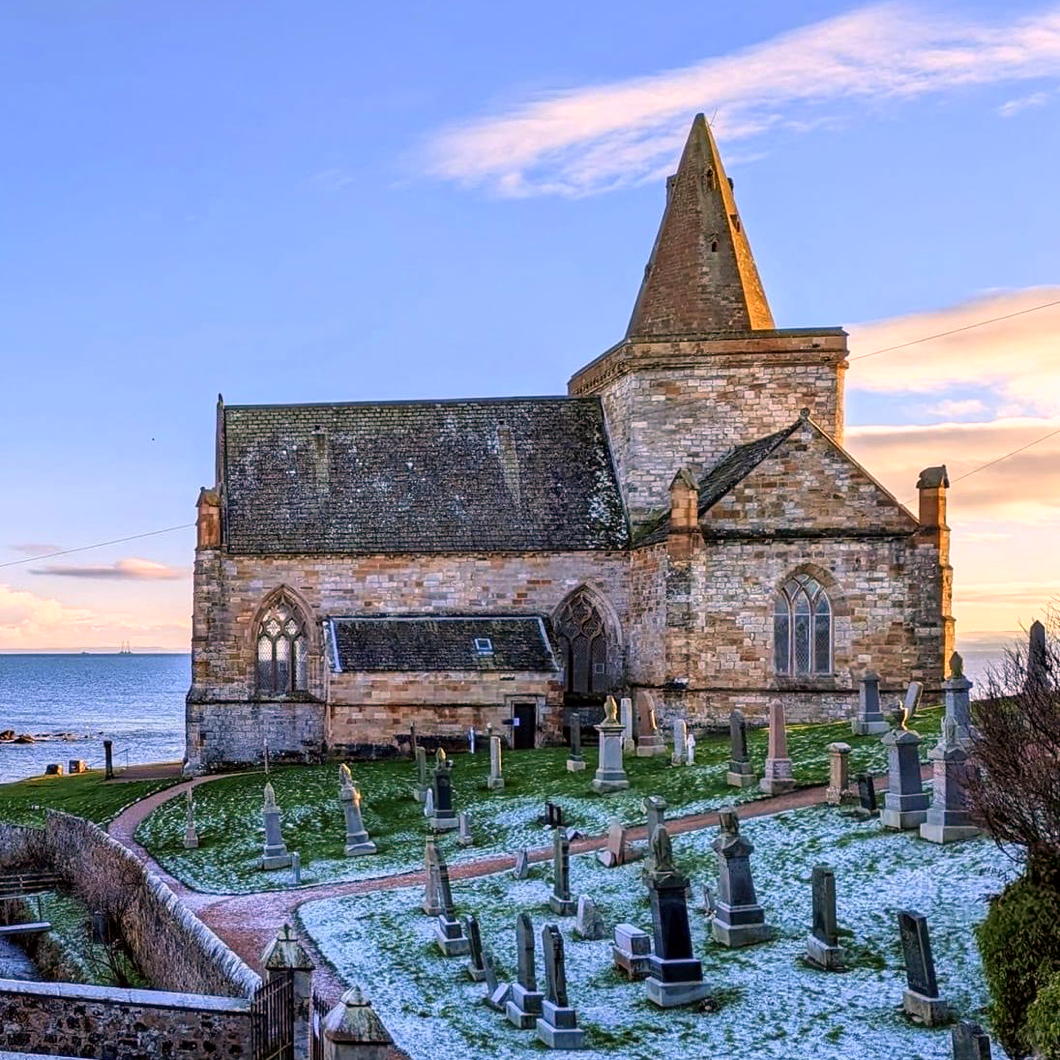
■ An entirely different and more disappointing form of retreat in Scottish religion is the (Presbyterian) state kirk’s decision to withdraw from tons of their smaller churches. St Monans is one of the mediæval gems of Fife, overlooking the harbour of the eponymous saint’s village since the fourteenth century, and built on the site of an earlier place of worship.
Cllr Sean Dillon pointed out the East Neuk is to lose six churches — some of which have been in the Kirk’s hands since they were confiscated at the Reformation, including St Monans.
John Lloyd, also of the FT, reported on this last summer and spoke to my old church history tutor, the Rev Dr Ian C. Bradley. More on the closures in the Courier and Fife Today.
What a dream it would be for a charitable trust to buy St Monans and to restore it to its appearance circa 1500 or so, available as a place of worship and as a living demonstration of Scotland’s rich and polychromatic culture that was so tragically destroyed in the sixteenth century. You could open with a Carver Mass conducted by Sir James MacMillan.
■ And finally, on the last day of MMXXIII, the architect Conor Lynch reports in from Connemara with this scene of idyllic bliss:

Beers We Have Known (and Loved)
“What’s your favourite beer?” one might very well ask, but it’s a difficult question to answer. Like wines, there are different beers for different occasions and what might be perfect for one situation might prove inappropriate in others. I loathe the disgusting lagers that the word “beer” represents for most Americans. I prefer the middle-to-darker range of beers, and a good bitter in the afternoon is heavenly.
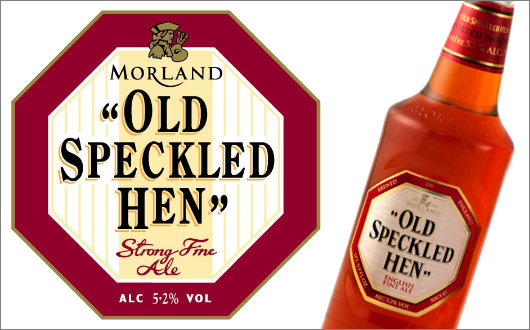
Old Speckled Hen is one of my favourites, and I’ve found it goes very well with ham.
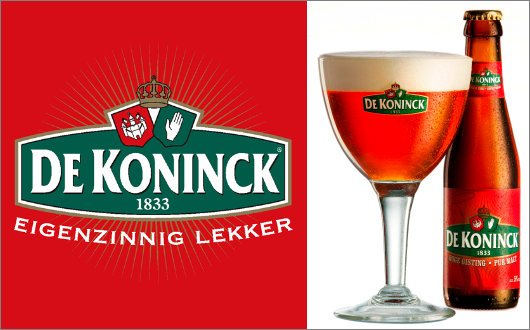
Lunch today was a perfect croque-monsieur & salad with side of Belgian fries at one of my preferred Manhattan eateries, served with a glass of De Koninck.
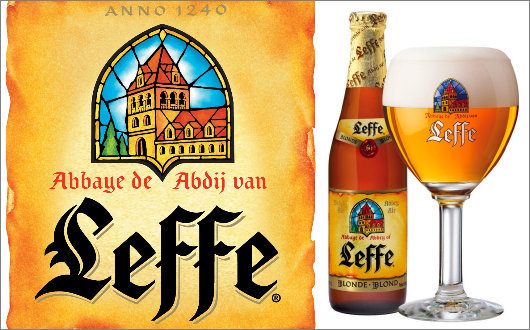
Leffe, in its blonde and brown varieties, is appropriate on most occasions.
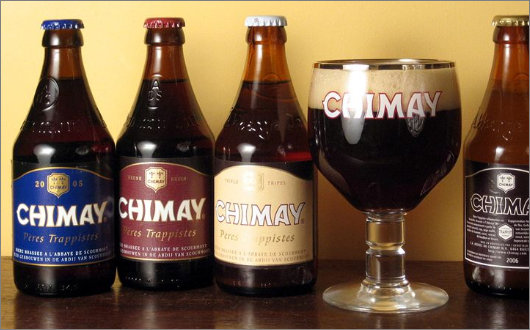
Chimay is great for a winter’s evening by the fire, if there’s no mulled wine available.
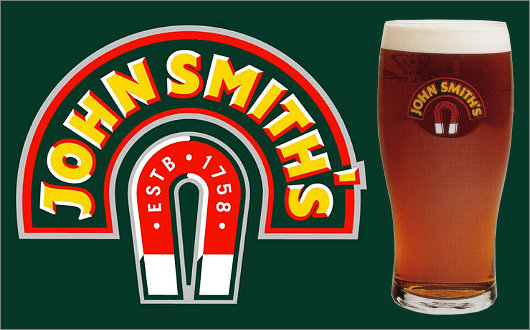
John Smith’s was our favourite tipple at university, where the Russell sold it in two-pint glasses until they realised my circle were the only ones drinking it and so replaced it with something more profitable.
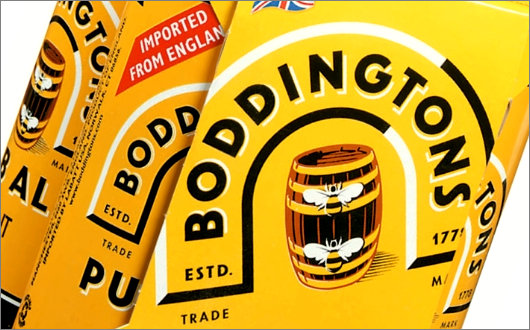
Boddingtons is similar to John Smith’s and more readily available in the States.
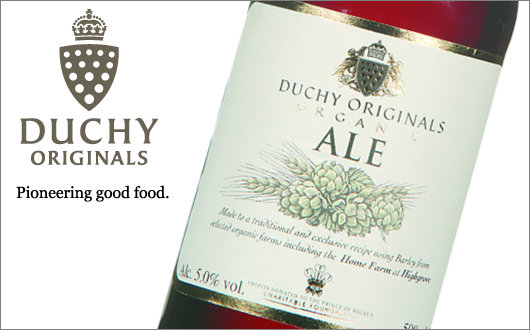
My favourite beer, however, is actually made by the Prince of Wales (of all people): the organic ale produced by the Duchy of Cornwall. (The ancient duchy is among the many titles traditionally held by the Sovereign’s heir, and the one immediately following Prince of Wales in precedence). To my continual surprise, I’m able to find it for purchase right in my home town. I wonder if they keg it for draught as well, though surely that would be impossible to find in America.
Heaven in Herefordshire
In the weekly South African edition of the Telegraph, I came across a brief note marking the death of England’s oldest publican, Flossie Lane of ancient Leintwardine in Herefordshire. From the internet, I find the full version of her obituary, which is reproduced below. The Sun Inn, with its “Aldermen of the Red-Brick Bar” sounds like a splendid haven.
Flossie Lane, who died on June 13 aged 94, was reputedly the oldest publican in Britain, and ran one of the last genuine country inns
For 74 years she had kept the tiny Sun Inn, the pub where she was born in the pre-Roman village of Leintwardine on the Shropshire-Herefordshire border.
As the area’s last remaining parlour pub, and one of only a handful left in Britain, the Sun is as resolutely old-fashioned and unreconstructed today as it was in the mid-1930s when she and her brother took it over.
According to beer connoisseurs, Flossie Lane’s parlour pub is one of the last five remaining “Classic Pubs” in England, listed by English Heritage for its historical interest, and the only one with five stars, awarded by the Classic Basic Unspoilt Pubs of Great Britain.
She held a licence to sell only beer – there was no hard liquor – and was only recently persuaded to serve wine as a gesture towards modern drinking habits.
With its wooden trestle tables, pictures of whiskery past locals on the walls, alcoves and a roaring open fire, the Sun is listed in the CAMRA Good Beer Guide as “a pub of outstanding national interest”. Although acclaimed as “a proper pub”, it is actually Flossie Lane’s 18th-century vernacular stone cottage, tucked away in a side road opposite the village fire station.
There is no conventional bar, and no counter. Customers sit on hard wooden benches in her unadorned quarry-tiled front room. Beer – formerly Ansell’s, latterly Hobson’s Best at £2 a pint – is served from barrels on Flossie Lane’s kitchen floor. (more…)
Guinness: Advertising with Imagination
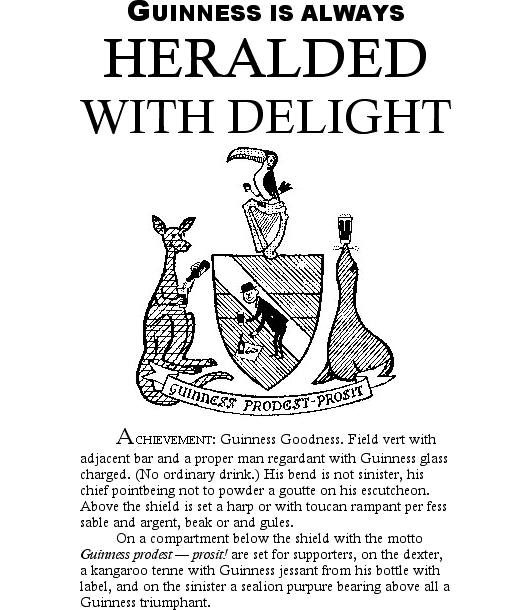
Cheshire heraldry expert Martin Goldstraw stumbled upon this creative ad for Guinness while stumbling through some old copies of The Coat of Arms, the journal of the Heraldry Society. [Mr. Goldstraw’s image modified by yours truly].
Among the heraldic terms employed in the text:
field
vert
bar
proper
regardant
charged
ordinary
bend
sinister
chief
goutte
escutcheon
rampant
sable
argent
or
gules
compartment
shield
motto
supporters
dexter
tenne
jessant
purpure
triumphant
Drink Audit Ale in Heaven With Me
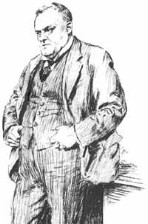
I pray good beef and I pray good beer
This holy night of all the year,
But I pray detestable drink to them
That give no honour to Bethlehem.
May all good fellows that here agree
Drink Audit Ale in heaven with me,
And may all my enemies go to hell!
Noel! Noel! Noel! Noel!
May all my enemies go to hell!
Noel! Noel!
WITH THESE SIMPLE and lovely lines, the great Hilaire Belloc superbly expressed the esprit de Noël of the Christian curmudgeon. It amounts, more or less, to “Rend honor to the Holy Child, and to hell with the rest”. His Lines for a Christmas Card are obviously meant in a jovial and light-hearted spirit (naturally, we Catholics would not wish Hell on any poor soul), and completely intelligible but for this curious line, “May all good fellows that here agree / Drink Audit Ale in heaven with me”. What on earth is Audit Ale?
Before the Reformation, the English year was a calendar of feasts, festivals, and holidays—holy days, even. Four of these holy days, spaced fairly evenly throughout the year, were marked for such things as the collection of rents and the paying of feudal tributes. These four were Lady Day (March 25, the Feast of the Annunciation), Midsummer Day (June 24, the Feast of St. John the Baptist), Michaelmas (September 29, the Feast of St. Michael the Archangel), and Christmas (December 25, of course, the Feast of the Nativity of Christ).
Now, events such as the collection of fees and taxes and the giving of feudal tribute tend towards the dour, and so often a feudal lord would have a special ale brewed for these occasions, to ensure a certain amount of merriment among the commonfolk once their tribute had been paid and the burden lifted. This tended to be called ‘audit ale’, since it was brewed around the time of audit. They were not, you will be happy to learn, the only seasonal brews around. There was ‘leet-ale’ for when the manorial court, or court-leet, convened, and there was Whitsun-ale for Whitsuntide, and there were church-ales which went towards the upkeep of the parish church and alms for the poor. Indeed, in village of Sygate in Norfolk, there is an inscription on the gallery of the church which reads:
And give us good ale enow . . .
Be merry and glade,
With good ale was this work made.
Also, interestingly, the very word ‘bridal’ comes not from the -al suffix English developed up from Latin, but rather from the Old English brýd-ealo: bride-ale or wedding-ale.
With the advent of Protestantism—and most especially the Puritan variant thereof—feasts, seasons, and other joviality generally became frowned-upon. England was forced to be less English, as the monotonous bores took over. Still, remnants of the feasts and seasons remained. Lady Day was the first day of the year in the British Empire until 1752, when the Gregorian calendar was finally adopted. Similarly, the fiscal year in the United Kingdom begins on April 6, because that day in the Gregorian calendar corresponds to Lady Day in the old Julian calendar. In Oxford and Cambridge, meanwhile, colleges still brewed special ales for the time when grades were released; either to celebrate the achievement or to soften the blow. These brews kept the old moniker of ‘audit ales’ and Belloc most likely uses the term in this derivation. Even in my own time at St Andrews we often sipped home-brewed ale from ancient, battered pewter tankards, though we rarely needed the excuse of holy days to continue the tradition.
 So this Yuletide perhaps you will consider home-brewing, and brew a special ale for the festal season now that the penetential time of Advent is passing. But, if you’re otherwise engaged, head into town and make sure to have a beer, and raise your pint to that Wondrous Babe whose birth brings us such mirth and cheer.
So this Yuletide perhaps you will consider home-brewing, and brew a special ale for the festal season now that the penetential time of Advent is passing. But, if you’re otherwise engaged, head into town and make sure to have a beer, and raise your pint to that Wondrous Babe whose birth brings us such mirth and cheer.
Old Speckled Hen
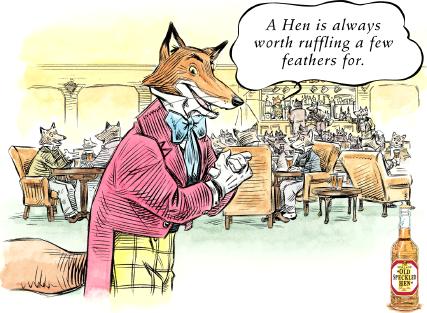
Spring has come late to Fife this year, but I do think we’re all the better for it. One appreciates so much more these spriteful spring days after a longer dark season, though in all honesty I already partly miss the many snowy days we enjoyed in St Andrews this winter. How splendid it is to warm oneself by the fire on a cold winter’s day, with a cup of coffee or a pint of ale and some Washington Irving to read. None of that today, however!
Quite a decent day, really. The eleven o’clock Mass saw a good friend received into the Church, followed by her Confirmation along with another friend of mine. After the post-Mass tea and coffee, myself, young McMorrin, Tom Howard, Adrian, Miss Brennan, Michelle, and Miss Dempsey got sandwiches from Cherries and enjoyed the sun-soaked ruins of the Cathedral cloister. I had a delicious honey mustard chicken and stuffing brown-bread baguette, splendidly washed down with a bottle of Old Speckled Hen. (more…)
Search
Instagram: @andcusack
Click here for my Instagram photos.Most Recent Posts
- Burns Tower April 19, 2024
- Patrick in Parliament March 18, 2024
- Articles of Note: 13 March 2024 March 13, 2024
- Cambridge March 9, 2024
- Taken on Trust March 4, 2024
Most Recent Comments
Book Wishlist
Monthly Archives
Categories

